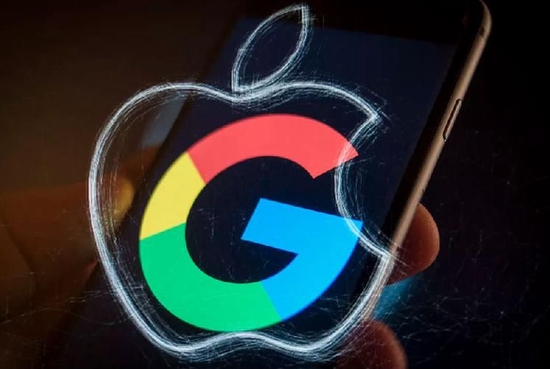your current location is:Home > TechnologyHomeTechnology
Google invests in developing its own hardware: as Apple eats away Android phone market share

Google may be experiencing the company's worst nightmare right now, Apple's iPhone is taking market share from Samsung phones running Google's Android system. Meanwhile, U.S. antitrust regulators are also scrutinizing Google's search deal with Apple, which could make Google's search engine lose its favorable position in the iPhone's Safari browser.
Those headwinds are threatening Google's mobile advertising business, leading the tech giant to take a big gamble. According to an internal Google document, the company is investing in its own hardware development, including its Pixel line of phones. In addition, the company is moving non-hardware product development and software engineering staff to work in the hardware device division.
Google isn't reducing support for Android devices made by top partners including Samsung, but the company is more of a gamble that the South Korean electronics maker's business is likely to decline further. One of Google’s senior search executives, Sissie Hsiao, recently told some colleagues that CEO Sundar Pichai believes Google should make its own devices because it does, according to people familiar with the matter. "Best for protecting the company from the wider mobile market". Xiao also told colleagues that Google was concerned that Samsung's customers would be taken away by Apple.
Google's decision to move engineering and developers into its Google-branded hardware division reflects the economic pressure on the company from a sharp slowdown in the digital advertising market. Pichai said last month, both publicly and privately, that he wanted the company to be 20 percent more efficient, and he also hinted that hiring and budget cuts were coming. Since then, Google has slashed budgets in some divisions deemed less critical to its existing business, such as a startup incubator within the company, with mixed results.
The document shows Google's decision to reduce investment in the development of Google Assistant voice-assisted search for cars and non-Google-made devices, including TVs, headphones, smart home speakers, smart glasses and smartwatches that use Google's Wear OS software. Such an approach reflects the company's attitude.
The Android Auto operating system used by automakers including Volvo and BMW will soon be able to provide Google brings in about $1 billion in annual revenue, and the system powers a vehicle's infotainment system. However, Xiao said the amount was too small to have a material impact on the company's business (Google had $257.6 billion in revenue last year), so she considered diverting some people from the job. Xiao is responsible for managing more than 2,000 employees.
Google offers Android Auto software that connects to the car, where Android users can plug their phone into the car and cast their device content onto the car's display, similar to Apple's CarPlay software, and there's no sign that Google will slow down its efforts in the feature. development on.
A source familiar with the discussions said Google executives also discussed another option: moving some of the product managers who develop Google TV software for TVs to a team that develops software for Wear OS, a wearable device, and a team that develops tablet software. The computer team, which is still under wraps.
The changes could be bad news for a range of hardware makers and automakers that do business with Google. Google already counts Samsung and Chinese brands OnePlus and Xiaomi as premium Android phone partners for which it should develop the best Google services. However, for a slew of other Android phone makers, they may not get the same attention from groups like the Google Assistant team.
Strategic Realignment
The cost cuts triggered by the slowing advertising business and some of the decisions of Google executives were made for strategic reasons, and they need to focus more on their own hardware rather than continue to support hardware made by other companies.
When it comes to consumer devices, Google has long been pulled in both directions. The company's roots in Internet software put it at the forefront of developing Android, which surpassed Microsoft's mobile operating system more than a decade ago to become the most widely used mobile operating system in the world. Google is continuing to develop the software and has partnered with dozens of consumer brands, including Samsung, that make Android-based devices. However, Google has gradually begun to focus its efforts on developing its own hardware. Starting in 2015, the company started making Google-branded Pixel smartphones before handing it over a year later to Rick Osterloh, who ran Google-owned phones from 2012 to 2014 Manufacturer Motorola Mobility.
So far, however, Google hasn't produced a big-selling phone. Data released by research firm Canalys shows that 4.5 million Pixel phones will be sold in 2021, compared to Apple's 230 million iPhones and Samsung's 275 million. But Google isn't holding back. They've ramped up production of their latest Pixel 7 device, which went on sale last week, starting at $599 for the base version and $899 for the Pro version, both lower than the latest base version. and the Pro version of the iPhone. Google has also been working to diversify the Pixel's foundry so it can manufacture the device outside of China. In recent years, Google has also acquired fitness tracker maker Fitbit for $2 billion. Last year, it launched its first chipset for mobile devices, similar to Apple's long-running effort for the iPhone, so that Google's machine-learning algorithms can run faster on its devices.
Another reason for Google to increase its investment in the Pixel is that Samsung's market share is being taken away by Apple. For example, Counterpoint Research estimates that in June, the iPhone surpassed 50 percent of the U.S. smartphone market for the first time. Samsung is a key partner of Google, which loads its devices with a plethora of revenue-generating Google apps under a licensing agreement for Google's Android mobile operating system.
dominance
Just as Samsung's decline was bad for Google, the growing power of the iPhone is also a problem for Google. While Google Search is the default search engine in Apple's Safari web browser, the profit margins generated by the deal from ad sales are far lower than the profits Google makes from Android devices because Google pays Apple a huge revenue share. In addition, U.S. antitrust regulators are trying to break Google's default search agreement with Apple as part of their efforts to rein in Google's power in the search market. If regulators succeed, Google could lose a significant portion of its search business to rivals such as Microsoft's Bing. Bing has started to provide support for some searches that originate from Siri voice queries on the iPhone.
Kirt McMaster, who is developing a blockchain-based wireless network, said that in the past, Google's consumer hardware business has been affected by a piecemeal strategy, as it sells phones (Pixel), laptops (Chromebooks). ) and different brands are used on smart home devices (Nest). McMaster previously ran Cyanogen, a maker of cellphones that use a modified version of Android. He said that Google faces a situation where it can't advance or retreat, as Apple continues to expand its market share even in such mature markets as the U.S. and Japan.
McMaster said: "Can Google do this in time? There's a good chance they won't. Apple has control now, and if it doesn't develop a cohesive hardware strategy now, Google will relinquish it. Give it to Apple."
And Google's trade-off may mean the company will reduce its investment in some hardware devices. For example, Xiao has previously said that she will eliminate Assistant in less important devices, such as Fitbit devices running non-Google OS, and laptops running Chrome OS.
A Google spokesman declined to comment.
related articles
Article Comments (0)
- This article has not received comments yet, hurry up and grab the first frame~













